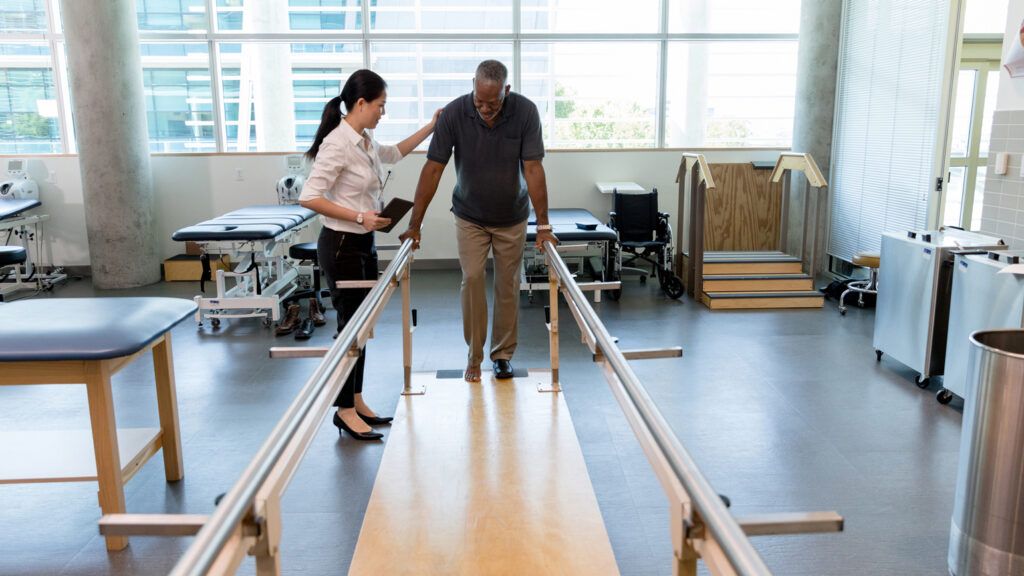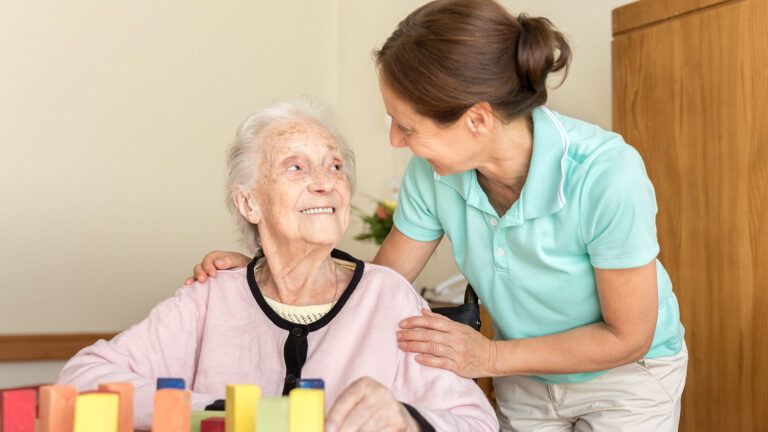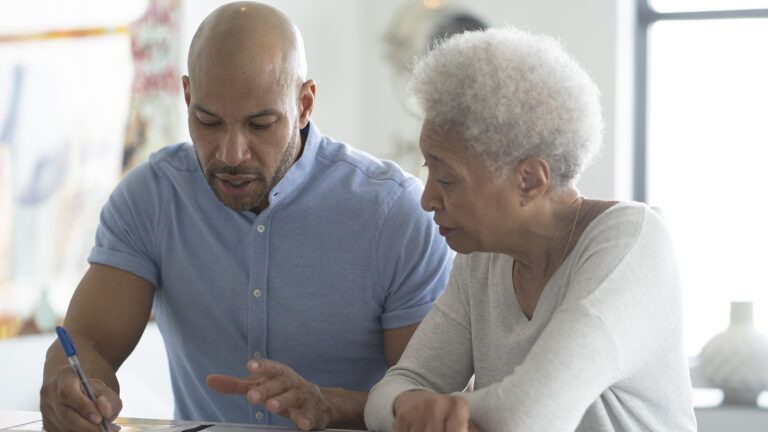This article is based on information provided by Philips Lifeline.
Falling is a serious and common hazard for older adults. For someone who has Alzheimer’s disease or dementia, the risk of falling is even higher, due to several complicating factors. Among these are vision, perception and balance issues, which can develop as the disease progresses. Evidence has indicated that even in the early stages of Alzheimer’s, patients can experience changes in their gaits. As a result, they become less steady on their feet. Another factor increasing the fall risk is that cognitive impairment leads to confusion, and that can cause panic. In addition, falls tend to be more serious for people with Alzheimer’s or dementia because they are in a weakened state.
The good news is that are a number of things you can do to help reduce the risk that your loved one will fall. By taking these steps, you can help prevent a serious injury. According to the latest figures from the National Council on Aging, at least one in three adults over 65 fall every year. Falls are the leading cause of injury and death for older Americans, according to data from the Centers for Disease Control and Prevention. Drug-maker Merck estimates that approximately one-third of older adults who live at home fall at least once a year, and most of those tumbles occur when they have physical or medical conditions and encounter stairs, electrical cords or a ringing doorbell or phone.
When Alzheimer’s or other forms of dementia enter into the equation, the risk increases, “Imagine not knowing where you are and not recognizing the people around you — that experience alone can make someone anxious and panicked,” says Paul Adams, Senior Director of Product Management for Philips Lifeline. “And when you’re anxious and panicked, you tend to move too quickly and carelessly.”
How Do Alzheimer’s and Dementia Contribute to More Falls and Serious Injuries?
Our own research shows that older adults with cognitive impairment, which includes those who have Alzheimer’s and dementia, fell 54 percent more than those who do not have these chronic conditions. And older adults with Alzheimer’s are actually three times more likely to suffer from hip fractures than those without the disease, according to a 2010 study reported in the British medical journal Age and Ageing. Broken hipbones can lead to surgery, which can require further hospitalization. This can result in disorientation. The study also found that a broken hip is more likely to prove fatal to people with Alzheimer’s or dementia than to those without cognitive impairment.
Other factors that heighten the likelihood of falling include complications from co-morbidity (other chronic conditions) and side effects from medications. Any serious injury can make it impossible for the person to stay at home. But there are a number of things you can to keep your loved one safer by preventing a fall.
Tips to Reduce the Risk of Falling:
· Talk with your doctor about whether your loved one may be cognitively impaired.
· Ask your doctor to perform assessments of cognitive and physical function in your loved one’s annual wellness exam. “Everyone who has Medicare is entitled to an annual wellness exam measuring both physical and cognitive function,” says Jennifer Blackwood, associate professor of physical therapy at the University of Michigan-Flint and a board-certified geriatric clinical specialist in physical therapy. “Based on the results of those tests, a patient can be referred to a physical therapist for assessment.”
· See that your loved one remains active. The Alzheimer’s Association provides guidelines for caregivers of Alzheimer’s patients, with a section dedicated to safety and preventing falls. “I tell my patients that exercise is the right medicine if they want to reduce the risk of falling,” Blackwood says. The proper activities help them increase strength and balance that keep them steadier on their feet. Ask your physician for a referral to a physical therapist or exercise physiologist who can show you activities to meet your goals and reduce the risk of falling.
· Review the Alzheimer’s Association guidelines for increasing safety and reducing fall risk. The guidelines are helpful both to older adults and their caregivers.
· Look into a medical alert device with automatic fall detection technology. These low-profile wearables not only detect a fall, but also automatically contact a call center for you. Rapid response to falls is critical to reducing their impact on overall health. In fact, our research shows that 60% of older adults who don’t request help within the first hour after a fall can’t return to living independently.
Because the situation is serious, it is important that you consider these tips to help reduce the risk that your loved one will fall. Doing so can go a long way toward protecting him or her and will give you greater peace of mind.
Don’t disregard professional medical advice, or delay seeking it, because of what you read here. This information is not intended as a substitute for professional consultation, diagnosis or treatment; it is provided “as is” without any representations or warranties, express or implied. Always consult a healthcare provider if you have specific questions about any medical matter, and seek professional attention immediately if you think you or someone in your care may be suffering from a healthcare condition.






